
- •NEWS IN BRIEF
- •TEXTS FOR READING
- •The Russian Avant-Garde Animated
- •METHODS OF TEACHING
- •A Continuous Teacher
- •PROFESSIONAL DEVELOPMENT
- •FOCUS ON LANGUAGE
- •Падеж существительных
- •Time Is Running Out!
- •Where Cognitive and Corpus Linguistics Meet
- •FOR YOUNG LEARNERS
- •The Time to Rhyme
- •SCHOOL THEATRE
- •How the Grinch Stole Christmas
- •Five-Minute Tests
- •LESSON PLANS
- •Interview with Paul De Quincey
- •Exhibitions
- •Music
- •YOUTH ENGLISH SECTION
- •GOOD NEWS
- •INFORMATION
- •2014 in Review
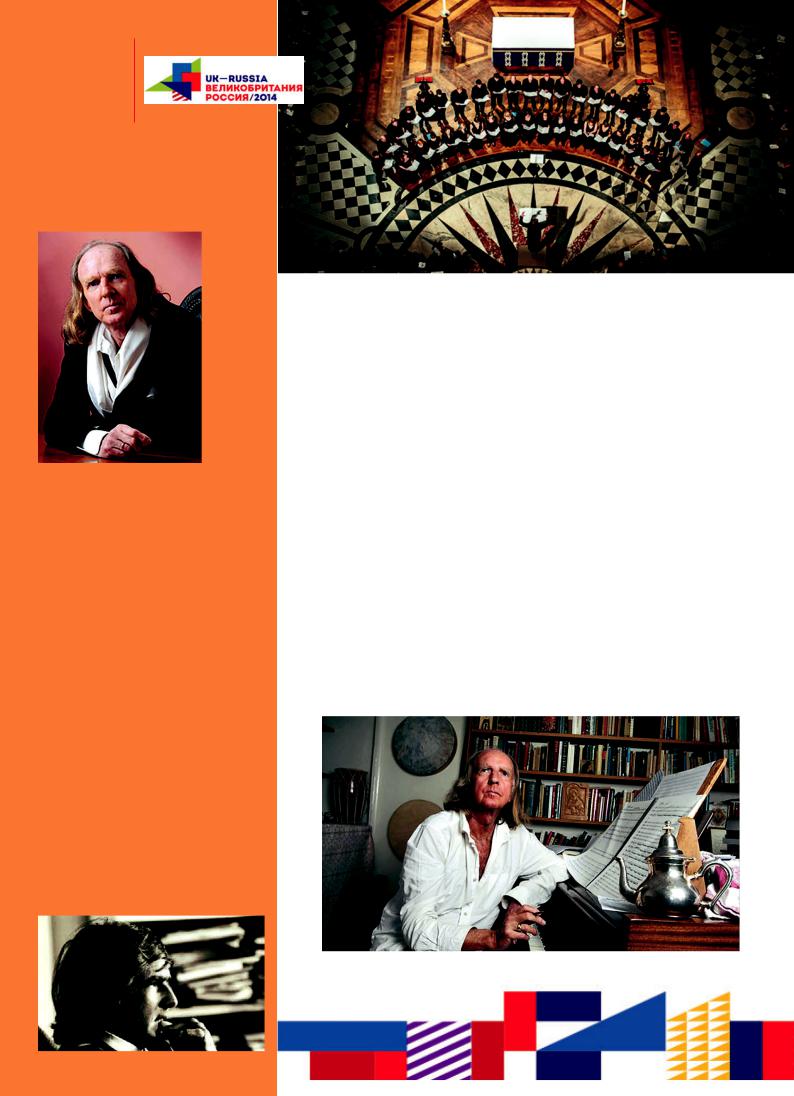
English |
TOPICAL JOURNEY |
30
December 2014
«Нельзя было выбрать более подходящую фигуру, чтобы продемонстрировать британско-российские культурные узы, чем Джон Тавенер.» http://www.vedomosti.ru
At first glance, John Tavener is something of a paradox: a profoundly religious, deeply spiritual composer who enjoys enormous popularity in a world that many define as materialistic, shallow, and indifferent to religion. However, the paradox disappears in the experience of his music, which, according to critics and fans, speaks to the soul, inviting the listener, regardless of his or her particular beliefs or disbeliefs, to ponder the great mysteries of human existence. Essentially, Tavener strives to glorify God in his music, but he does more: unlike the traditional religious composer who praises God, Tavener attempts, in his music, to build bridges to divine realms. These heroic efforts seem at odds with the Western tradition, which denies music such awesome powers.
St. Augustine, for example, would have regarded
Tavener as a sinner. “Yet when I happened to be moved more by the singing than by what is sung,” he wrote in his Confessions, “I confess to have sinned grievously, and then wish I had not heard the singing.”
“Tolstoy’s is a via negativa, certainly, but the poets who have attracted me have often been pretty bleak, like Akhmatova.
I was recently moved to tears by the beautiful pain of Schoenberg’s Second String Quartet. And I think suffering has got something to do with that. Suffering is a kind of ecstasy, in a way. Having pain all the time makes me terribly, terribly grateful for every moment I’ve got.”
Music
THE INTERNATIONAL MUSIC FESTIVAL “TAVERNER TO TAVENER”
The international festival “Taverner to Tavener: Five Centuries of English Sacred Music” and the eponymous conference, dedicated to the prominent British composer Sir John Tavener (1944–2013), was held at the Moscow Conservatory on 21 and 23 September, 2014.
The festival programme included a selection of works the late John Taverner personally put together specifically for Russian audiences. The concerts featured music by Tudor composers John Taverner (ca. 1490–1545), a direct ancestor of his contemporary namesake, and Robert Fayrfax (1464–1521), presenting English Renaissance pieces previously unknown in Russia. Contemporary sacred music was represented by selected works by Igor Stravinsky (1882–1971) and Arvo Pärt (b. 1935), whom Sir John Taverner considered to be close to his own creative style.
Sir John Tavener’s body of works shows multiple ties with Russian sacred music and Russian culture overall. Influenced by Russian literature, the composer set to music works by both Fyodor Dostoyevsky and Anna Akhmatova. A cappella music is one of the core elements of Sir John Tavener’s work, and it is no wonder the composer often found inspiration in Russian sacred music, as he converted to the Russian Orthodox Church in 1977.
Rachmaninov Hall of Moscow Conservatory hosted the festival on the 21 of September and featured the following programme:
The Russian premiere of “The Ikon of Light” by Sir John Tavener was the focal point of the festival. Inspired by a hymn from Symeon the New Theologian’s collection, the composition was created especially for “The Tallis Scholars” ensemble, who first performed it in 1984.
John Tavener in 1970. Photograph: Eric Wadsworth
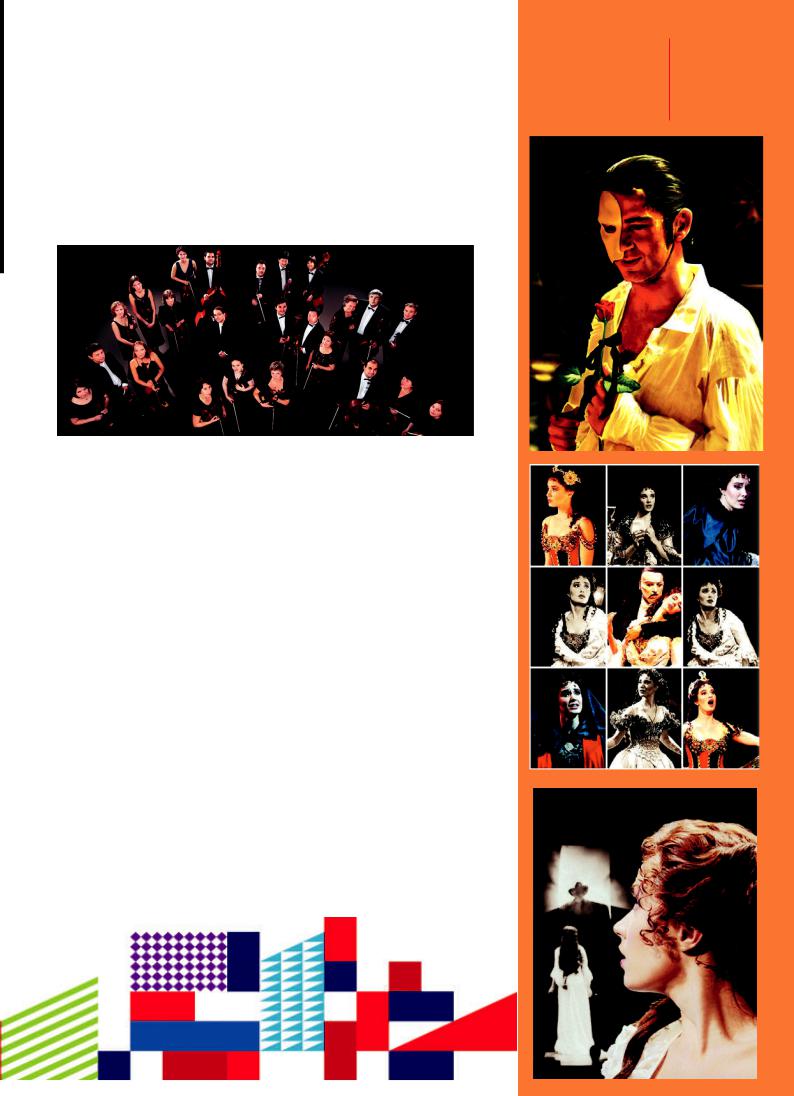
MUSIC FESTIVAL AMBASSADORIAL GIFTS
Music festival “Ambassadorial Gifts” took place in The Moscow Kremlin Museums between September, 24 and November, 11. Well-known musicians from Great Britain and the Russian Federation performed the best of English and Russian musical art and presented to the public their own vision of the musical traditions of both countries.
The festival was opened by “The Tallis Scholars” – a famous British vocal group (director and conductor – Peter Phillips) which has recently celebrated its 40 years anniversary. Amongst the Russian participants there were The Moscow Chamber Orchestra “Musica Viva” (director and conductor Alexander Rudin), The Choir “Intrada” (director and conductor Ekaterina Antonenko), the soloists of the Choir of The Candlemas Monastery, countertenor Rustam Yavaev and other musicians.
The festival presented European church music of the 15–20 centuries, sacred music created by Russian composers of the 17–19 centuries, secular music by English composers of the 16–18 centuries and also the music composed by Thomas Linley for the Shakespeare’s tragedy “The Tempest”.
THE PHANTOM OF THE OPERA
“The Phantom of the Opera” is one of London’s major theatrical attractions. This musical has been staged at Her Majesty’s Theatre daily 8 times a week since 1986 without a single break! I am sure that “The Phantom of the Opera” will be a huge success in Moscow at the MDM Theatre. It is particularly symbolic that the premiere of this ambitious, large-scale production will take place as part of the UK–Russia Year of Culture.
Dmitry Bogachev, producer of the Russian production and Head of Stage Entertainment Russia.
Andrew Lloyd Webber’s “The Phantom of the Opera” has the longest record of continuous daily staging on Broadway and the West End – almost thirty years. The play has been staged in 151 cities in 30 different countries; more than 130 million people have seen the show. The box office has exceeded $ 5.6 billion, significantly more than some of the highest-grossing Hollywood movies. The musical has won more than 70 major theatre awards, including three Laurence Olivier Awards, seven Tony Awards (including the Best Musical Award) and seven Drama Desk Awards.
Andrew Lloyd Webber, the world-renowned British composer of “The Phantom of the Opera” has won a number of prestigious awards in the world of theatre, music and cinema, including seven Tony awards, and three Grammy awards, as well as an Oscar and a Golden Globe award. The phrase “West End” has become synonymous with theatrical life, with around forty theatres in London staging musicals and dramas on a regular basis.
The Russian premiere of Andrew Lloyd Webber’s “The Phantom of the Opera” staged by Stage Entertainment took place on 4 October at the MDM Theatre.
English
31
December 2014
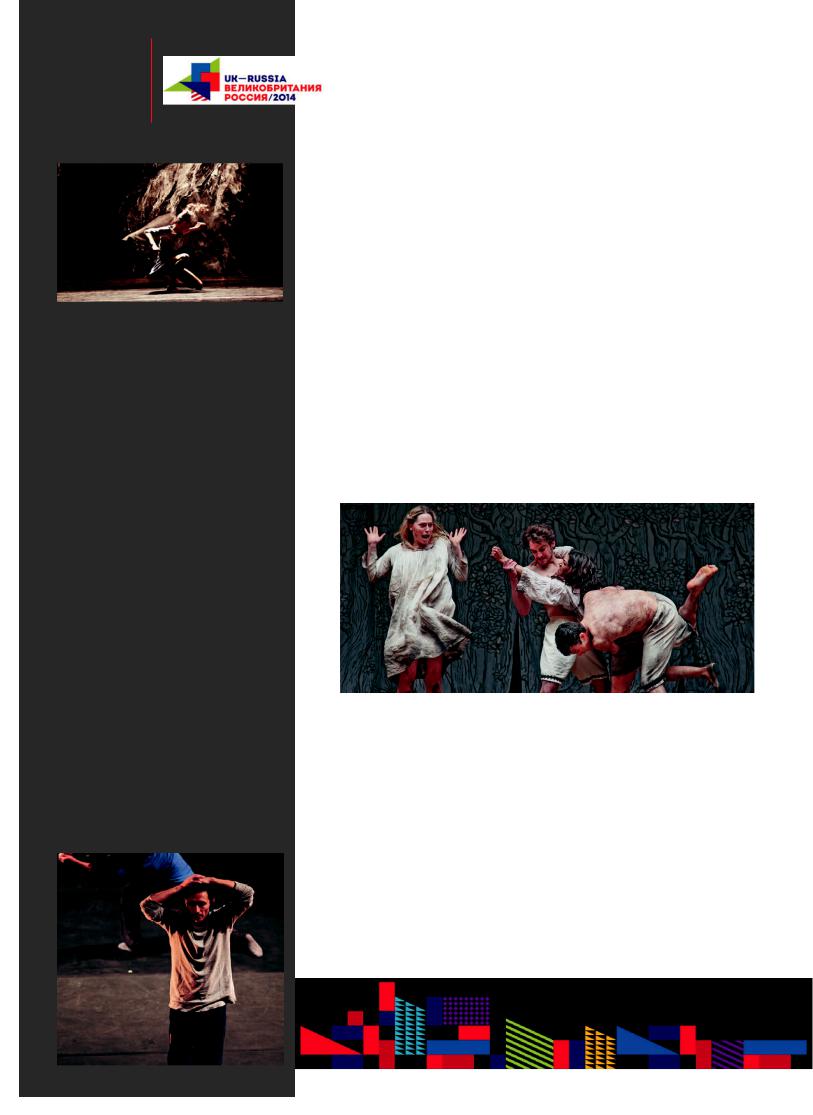
English |
TOPICAL JOURNEY |
32
December 2014
The Opening of the IXth International Festival of Contemporary Art ”Territoriя” will feature the Russian premiere of the ballet “iTMOi” by Akram Khan Company
01 October 2014 – 14 October 2014 Moscow
British of Bangladeshi background and one of the most audacious choreographers of the 21st century, who combines in his performance and choreography both contemporary dance and traditional Indian ‘kathak’ styles.
On October, 10-14, the Moscow Museum of
Contemporary Art hosted the Russian premiere of a project created by a director, entitled ‘Exhibit B’. His ‘Living installations’ are a cycle of works on the edge of contemporary art and documentary theatre with the common motif of ‘human menagerie’ – less than 100 years ago natives of colonies were actually exhibited in cages. It is the story of the death of the national cultures of natives of British and other nations’ colonies.
The latter project has headlined at Avignon, Edinburgh, Amsterdam and other festivals. Exclusively for ‘Territoriя’, Bailey will add a Moscow-specific element – the new heroes will be Russian migrants. The project is organized with the support of the British Council.
About the production: iTMOi (in The Mind Of igor)
The acronym – iTMOi – stands for ‘In the Mind of Igor’. Igor Stravinsky drew inspiration for his famous ballet, The Rite of Spring, while immersed in a dream: a dancer performs a wearisome ritual meant to return Spring to the world through sacrifice, but in doing so she dances herself to death. Akram Khan’s production dives into the artist’s dream and after it – exploring a collective unconsciousness filled with mythology and passion.
Theatre an
The Chekhov International Festival opened the gate to the celebration of the UK–Russia Year of Culture 2014 with a sparkling summer season of British theatre. In May and June 2014 they presented a mixed bill of drama and dance from some of the finest UK companies.
That included a co-production by National Theatre of Scotland/RSC; Scottish Ballet featuring Matthew Bourne’s Highland Fling amongst other contemporary dance pieces; Sadler’s Wells’ new piece by leading choreographer Russell Maliphant, new work by the award-winning dance-theatre company Gecko.
Shakespeare’s “Globe” theatre in the framework of the world tour visited Russia for the very first time, and brought productions from their hit 2013 season not only to the audience in Moscow but to the theatre fans in St. Petersburg, Pskov, Voronezh, Kazan, Yekaterinburg, Chelyabinsk, Tyumen and Khanty-Mansiysk.
Theatre programme in Moscow began with “Hamlet” by William Shakespeare staged by Shakespeare’s “Globe” theatre (London) directed by Dominic Dromgoole and Bill Buckhurst, with a designer Jonathan Fensom, was performed in Moscow Mayakovsky theatre on May 13, 14.
The play Dunsinane by David Grеig staged by National Theatre of Scotland (Glasgow) and the Royal Shakespeare Company (Stratford-upon-Avon) directed by Roxana Silbert and designer Robert Innes Hopkins was performed in “Mossovet” theatre on May 15–17.
Two ballets – one-act ballet “Silhouette” by Pierrot Lunaire, music – Poulenc (Concert Champêtre for harpsichord and orchestra), choreography – Cristopher Hampson, and “Pierrot Lunaire” – music by Arnold Schoenberg, choreography by Glen Tetley, staging by Bronwen Curry – were performed by Scottish Ballet (Glasgow) in “Mossovet” theatre on June 4–8.
The beginning of summer, June 11–14 in “Mossovet” theatre was remembered also by the modern prominent Matthew Bourne’s Highland Fling performed by Scottish Ballet (Glasgow). Music – La Sylphide by Herman Severin Løvenskjold, directed and choreographed by Matthew Bourne. Set and Costume Designer – Lez Brotherston.
Between June 16 and 18 “Pyotr Fomenko’s Workshop” theatre was enlightened with “Missing” by Gecko (Ipswich, Suffolk), created by Amit Lahav, designed by Rhys Jarman and Amit Lahav.
Concerning “A Midsummer Night’s Dream” by William Shakespeare, staged in Shakespeare’s “Globe” (London) directed by Dominic Dromgoole “The Telegraph” reviews as: “Dominic Dromgoole’s lively affectionate and
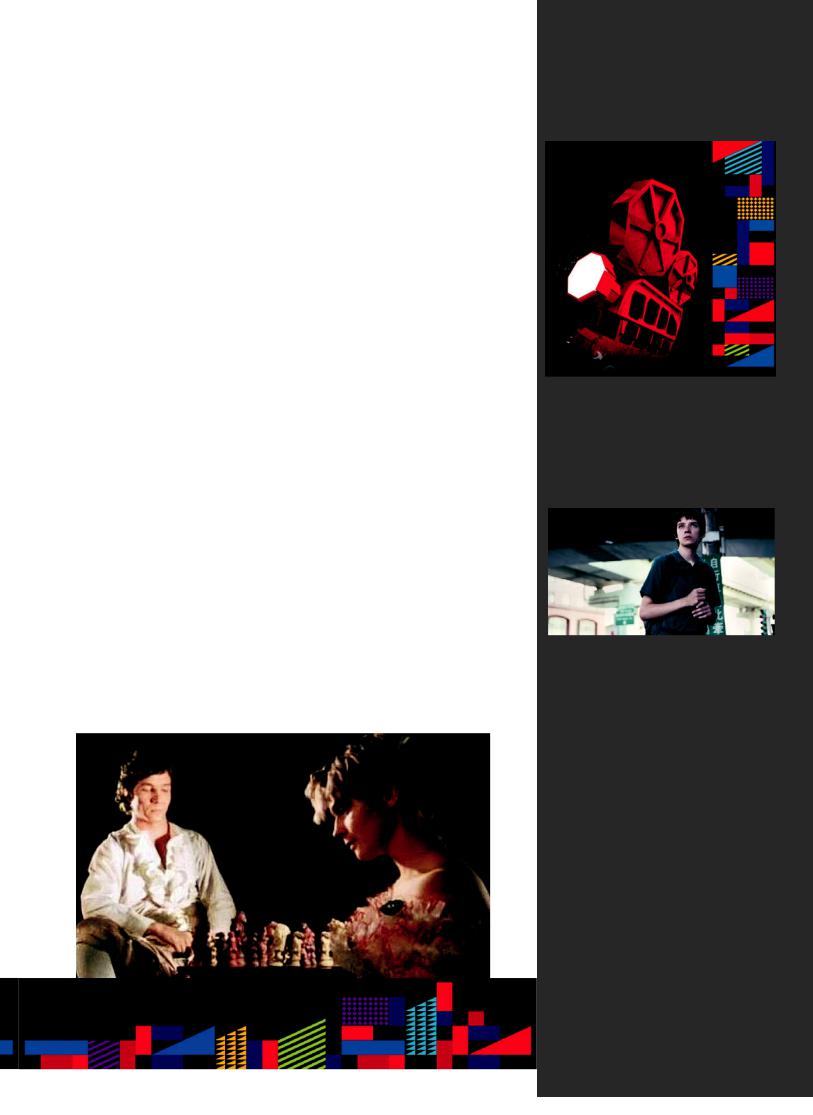
d Cinema
consistently inventive staging beautifully captures both the humour and the disconcerting strangeneness of the play.” The play and its masterpice performance made autumn theatre season sparkled with many bright colours in Moscow and other cities as well where the “Globe” theatre performed its art.
CINEMA FESTIVAL
Cinema festival was held from 15 to 27 September in the Fakel cinema which hosted the first ever Russian retrospective of renowned British film director, Derek Jarman (1942–1994). The retrospective was organised by the National Centre for Contemporary Arts together with the British Film Institute (BFI) with the support of the British Council, and was part of the International film festival, “VideoFocus”.
The festival featured a number of Derek Jarman’s works that mark different phases in his filmmaking career. The Moscow retrospective includes The Tempest (1979), Sebastiane (1976), Jubilee (1977), and Wittgenstein (1993). All films were shown as 35 mm.
During his 25 years in the film industry Derek Jarman became one of the UK’s most innovative artists. He abandoned traditional narrative filmmaking techniques and found a distinctive directorial voice. He produced works which were technically original, aesthetically radical and which constitute an astonishing personal and public record of England in the last quarter of the 20 th century. Jarman experimented with video image manipulation and ‘found’ material. His unconventional visual language is based on images connecting the past and the present, creating a new history and a new myth.
As part of the retrospective, the Documentary Film Centre hosted a documentary film by Isaac Julien – Derek (2008). The film was produced by Isaac Julien together with Jarman’s muse, Tilda Swinton and is built around a long 1991 interview with Jarman. Screenings were accompanied by two lectures devoted to Jarman’s work. On 24 th September Stephen Farthing spoke on Derek Jarman: Drawn to Film, focusing on Jarman’s approach to film making through writing, drawing and collage, and the following day, Ludmila Klueva
– an expert on Jarman’s work – talked about Analysing the films of Derek Jarman. Also works related to Jarman by students from theUniversity of the Arts, London were shown within the retrospective with a short introduction by Stephen Farthing.
TOPICAL JOURNEY |
|
English |
|
|
33 |
|
|
December 2014 |
From 28 October to 9 November 2014 the 15th jubilee New British Film Festival was held as part of the UK-Russia Year of Culture 2014.
The jubilee festival was opened in Moscow on 28 October 2014 at Formula Kino Gorizont Cinema Hall by the film The Invisible Woman, directed by Ralph Fiennes. The nominee of two
Oscars, Ralph Fiennes, who is famous worldwide for starring in films such as Schindler’s List, The
English Patient, Onegin and In Bruges, has already worked as a film director.
The festival programme also included a number of Russian premieres, including Lilting starring Ben Whishaw, Sunshine on Leith by Dexter Fletcher, God Help the Girl by Stuart Murdoch, and
Snow in Paradise by Andrew Hulme.
As this year the 15th jubilee of the festival is celebrated, the organisers have prepared a special documentary programme, which will be screened at the Documentary Film Centre. Among other films, festival guests saw the biography of the legendary photographer Jane Bown,
Looking for Light, as well as the film Various
Songs: a film on Pete Fij and Terry Bickers by
Peter Bromley, and a detective story, One Rogue Reporter by Rich Peppiatt and Tom Jenkinson – the latter was successfully presented at Sheffield
Doc Fest this year.
The traditional programme of retrospectives and the hero of this year is the legendary British film director, Mike Leigh. As part of his retrospective we will show films such as Life is Sweet and
Topsy-Turvy.
To celebrate the 450th anniversary of William Shakespeare, a series of adaptations of his plays was prepared, including Now: in the Wings of a World Stage by Jeremy Whelehan and the contemporary interpretation of The Tempest by Rob Curry.
The festival also included traditional animation programme and a short film programme, as well as a series of New British Film Festival Talks.
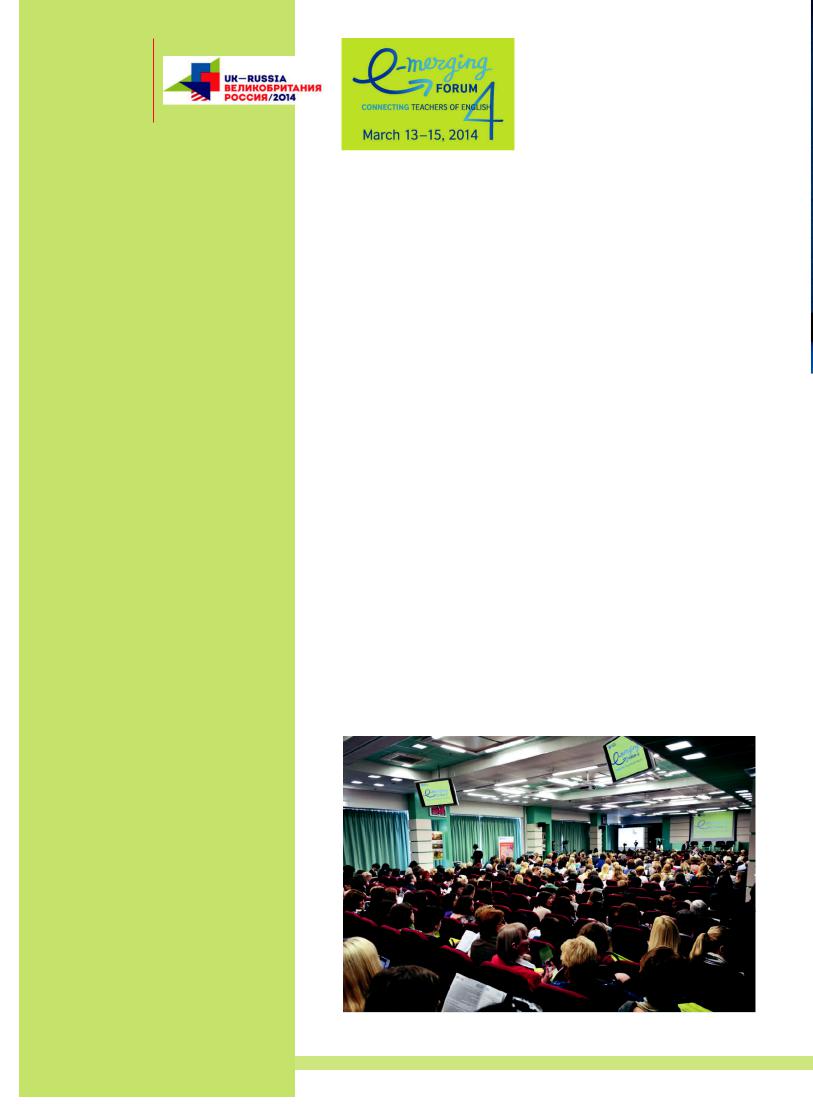
English |
TOPICAL JOURNEY |
34
December 2014
FUTUREEVERYTHING
FutureEverything, Manchester’s innovation lab for digital culture, has today announced a three month UK-Russian digital culture exchange programme in partnership with British Council Russia as part of the UK-Russia Year of Culture 2014.
FutureEverything Moscow, the first stage of the exchange, took place over four days in venues across Moscow, from 20–23 November 2014. It presents live performances by leading artists and musicians from Russia and the UK, an exhibition of cutting edge ideas spanning art and science, and workshops exploring participatory technologies and creative communities.
The ambition of the programme is to create new and deeper connections between creatives and technologists in Russia and the UK, celebrating connectedness and creativity, while contributing to debates about global data policies and creative communities.It will culminate at the FutureEverything Festival in Manchester, 26–28 February 2015 where projects developed between participants over the coming months will be presented.
The festival programme in Moscow will be presented by an exhibition, two workshops and a large-scale live programme.
“Quantum Entanglement” collective digital art exhibition presents work by artists whose vision is to demonstrate these ideas; to inspire, amaze and provoke. These new views, discoveries, undetermined consequences, poetical metaphors and multifaceted of perceptions which quantum physics suggest – are a source of deep inspiration for the artists – and after exploring these works, for the audience also. The show will feature brand new and existing works by the UK artists Memo Akten and Semiconductor and key Russian artists Where Dogs Run, Electroboutique and: :vtol: :.
The FutureEverything Moscow workshop programme invites participants to explore hands-on design, prototyping and idea generation around set themes. In НИИCommunication workshop participants from various fields will explore and prototype new forms of communication for a post-internet society. In the workshop with Strelka Institute, a team of experts from the UK will work hands-on with recent graduates to interrogate the gigantic and complex world of the ordinary, everyday life of a city.
FutureEverything Moscow features performances by some of the most influential electronic music artists working today. Over three days, we present a brand new commission; The Well by UK musician Koreless and live lighting engineer Emmanuel Biard, plus performances from Lee Gamble, Mark Fell, Powell, Evian Christ, Young Fathers and more. The programme will close with a 10 th anniversary showcase of the UK label Hyperdub, bringing Kode9, Ikonika and Scratcha DVA together.
Educa
E-MERGING FORUM 4 – BIGGER AND BETTER!
From 13-15 March the biggest English language event in Russia brought 1,200 people from 236 cities across Russia together in Moscow for E-merging Forum 4.
E-merging Forum is an annual event for teachers of English, which aims to bring teachers and teacher-trainers together to learn, discuss and share best practice in the ELT field. The unique format of the event combines traditional conference features including plenary talks, lectures and workshops with a whole day dedicated to encouraging participants to take a pro-active role and collaborate during outputbased discussions.As the title implies, the ideas that emerge during those discussion groups are then shared during the final plenary which is the highlight of the event, demonstrating both the practical value of the event for participants and showcasing the talent and creativity of the wider professional community.
The forum’s rapid growth in attendance, from 150 participants in 2011 to 1,200 participants in 2014, clearly indicates the need and importance of the event for the teaching community and cements the British Council’s place on the English language teaching landscape in Russia. 85% of participants said they’d learnt something new during the forum and 88% said they planned to disseminate what they’d learnt at the forum in their local contexts.
It’s hard to imagine an event without some kind of online engagement these days and the forum was no exception. Apart from live streaming of plenaries which were watched by a further 1,000 participants, there also were blog posts and video interviews with speakers and participants. To make social media engagement more meaningful a variety of activities and contests were introduced, including asking keynote speaker questions, a competition for the best photo on Instagram, competitions for the most active follower on Twitter and so on, all of which contributed to “exemplary use of social media” according to feedback from one of the keynote speakers.
“The E-merging Forum is a really unique event with a very special atmosphere, and its phenomenal growth in a mere four years is truly impressive. Congratulations to the whole team for making it happen – I’ve been to one or two other conferences over the years that tried to break the mould, but none that did so with such success and engaged and involved participants to such an extent.” Keynote speaker A. Pulverness (NILE)
Join us for E-merging Forum 5, 12–14 March 2015!
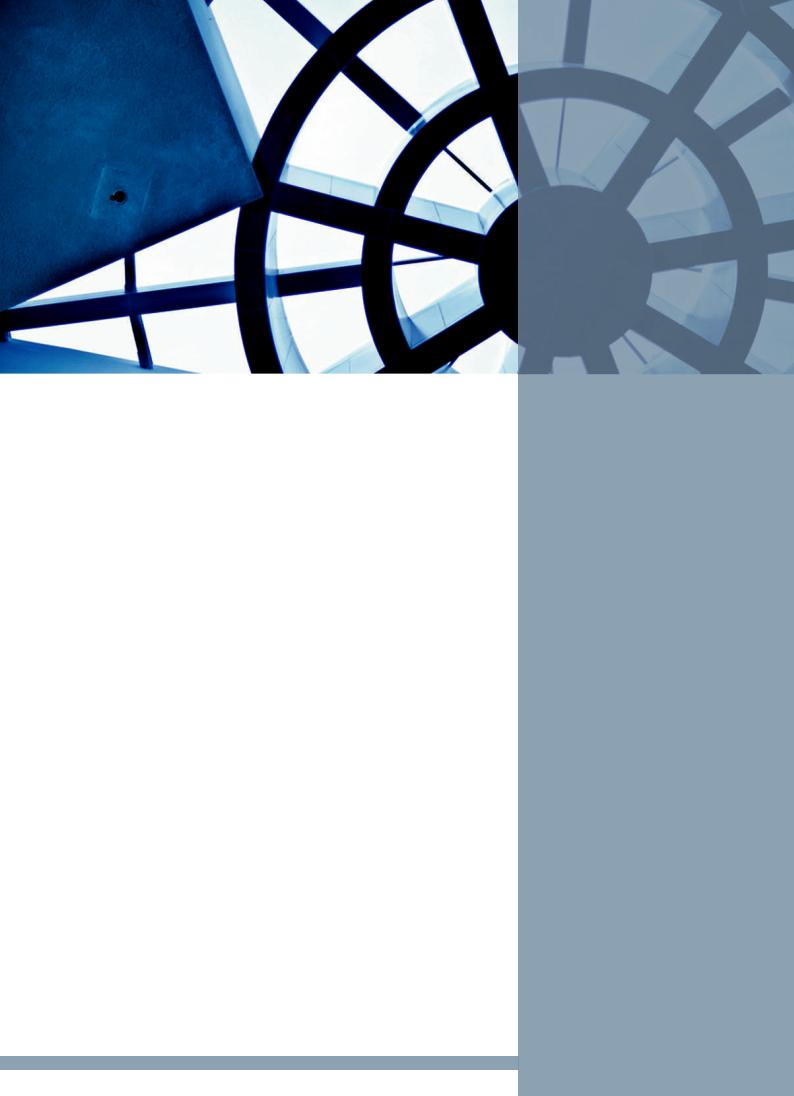
tion
TOPICAL JOURNEY |
|
English |
|
|
35 |
|
|
December 2014 |
EDUCATION UK EXHIBITION
The British Council holded the “Education UK” exhibition, the biggest event in international education in Moscow on 4–5 October, 2014. The 16th Education UK exhibition in Moscow was held in Ritz-Carlton Hotel, Tverskaya St, 3 and also in Saint Petersburg at the Corinthia Hotel, Nevsky with free admission.
Over 60 top UK institutions presented their programmes for secondary, higher and business education, as well as short courses and holiday programmes for children and adults. Visitors to the exhibition had the unique opportunity to talk to representatives from universities, colleges and schools and choose the ones best suited to their needs.
They could ask students and graduates from British universities questions, learn more about receiving a grant to study in the UK for free, find out how to build a creative portfolio and apply for scholarships. Visitors also had an opportunity to participate in British Council competitions and received prizes from exhibition partners.
THE INTERNATIONALLINGUISTIC SYMPOSIUM “HOW THE CHANGING WORLD VIEW IS REFLECTED IN ENGLISH AND RUSSIAN”
This bilateral event was held on 9–10 June 2014, as part of the UK-Russia Year of Culture 2014 hosted by the University for the Humanities.
It brought together leading philologists, foreign language teachers and methodologists, translators and other professionals from both countries, including prof. David Crystal from the UK and Maxim Krongauz from Russia as plenary speakers on the Future of Languages.
The Symposium aimed to spark dialogue between UK and Russian professionals on the development of languages. This, in turn, facilitated discussion and an opportunity for participants to share ideas on the challenges surrounding language usage and linguistic research and teaching, as well as an opportunity to identify common academic and research interests within the following content areas:
•The evolution of languages
•Linguistic Corpora
•Cross-cultural communication
•Language and cognition: language as a window to the mind
•Literature matters and translation beyond the boundaries
•Language teaching and methodology
WORKSHOPS ON ACADEMIC
WRITING IN RUSSIA
Russian universities are facing the serious challenge of how to increase the volume and improve the quality of their research published in international academic journals: this is one of the main assessment criteria in all world leading university rankings.
Supported by Shell, the British Council in partnership with the Royal Society of Chemistry (UK) will hold a series of events in 6 leading Russian universities on publishing in English in academic journals and, more broadly, successful science communication. The list of higher education institutions which will participate in the project are:
•Gubkin Russian State University of Oil and Gas
•D.Mendeleev University of Chemical Technology of Russia
•Moscow Institute of Physics and Technology
•Moscow State University
•National Mineral Resources University (University of Mines)
•Tomsk State University
Workshops, lectures and training on the following themes will be held in each university:
•how to publish your paper in an highimpact journal;
•how to choose a journal for publication;
•guidance on how to present your work orally (e. g. at a conference);
•efficient management and increasing impact factor of a journal published by university.
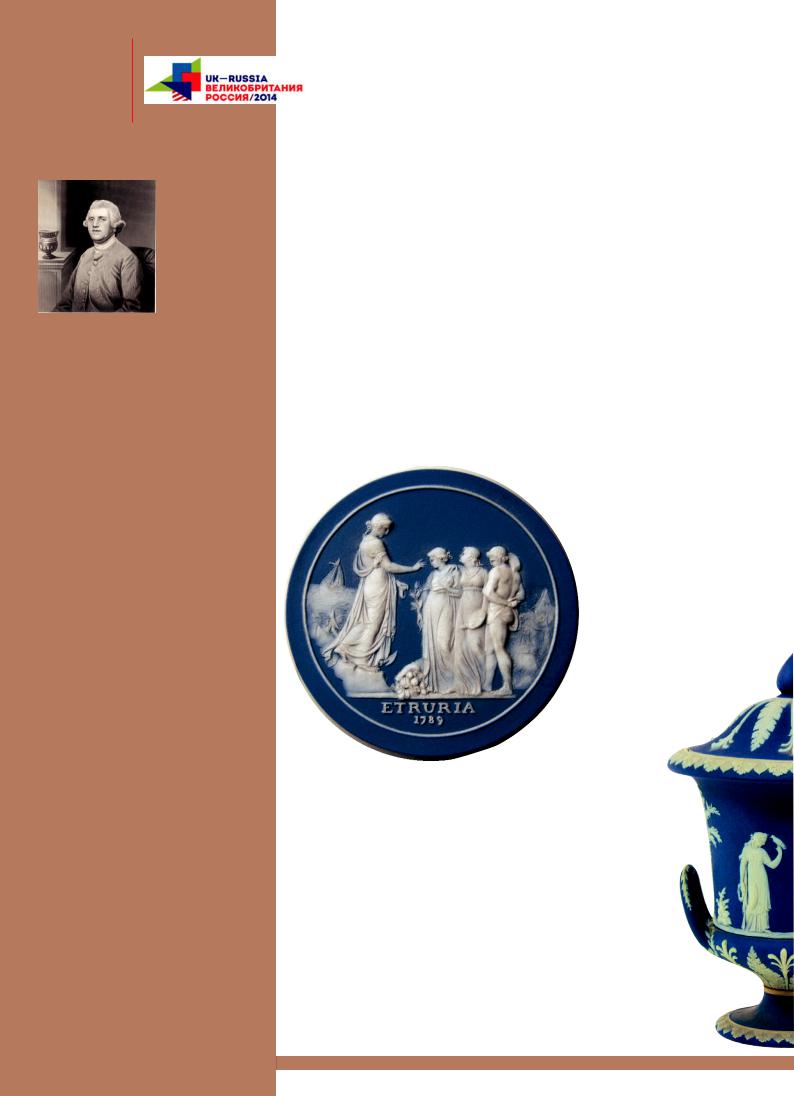
English |
TOPIICAL JOURNEY |
36
December 2014
JOSIAH WEDGWOOD
Wedgwood was an innovative designer, a manufacturer of high-quality pottery and a campaigner for social reform.
Josiah Wedgwood was born into a family of potters on 12
July 1730, at Burslem, Staffordshire. His father’s death in 1739 led him to an early start
working as a ‘thrower’ in the pottery of his eldest brother, Thomas, to whom he was later apprenticed. An attack of smallpox seriously weakened
Josiah, and in 1768 he had to have his right leg amputated. This meant he was forced to abandon throwing, but he subsequently gained a wider insight into the potter’s craft - for example the work of the ‘modeller’ - and this encouraged his love of experimentation.
Thomas refused Josiah a partnership in the business, so the younger man moved first to a small pottery run by John Harrison, then more happily to the firm of Thomas Wheildon of Fenton. From there, he opened works of his own, first at his cousin’s Ivy House and later at the Brick House factory. At these works, Wedgwood made many models himself, and also prepared clay mixes. In June 1769, he opened a new factory at Etruria, near Stoke-on-Trent, in partnership with Thomas Bentley. Attached to the factory was a village where Wedgwood’s workmen and their families could live in decent surroundings.
Wedgwood greatly improved the clumsy ordinary crockery of the day, introducing durable, simple and regular wares. His cream coloured earthenware was christened ‘Queen’s Ware’ after
Queen Charlotte, who appointed him queen’s potter in 1762. Other eminent patrons included Empress Catherine II of Russia, who ordered 952 such pieces in 1774.
Wedgwood experimented with barium sulphate (caulk), and from it produced jasper, in 1773. Jasperware, which is used for a whole host of ornaments, blends metallic oxides, often blue, with separately moulded reliefs, generally white.
Some such reliefs were designed for Wedgwood by John Flaxman. Other wares included black basaltes, frequently enhanced by ‘encaustic’ colours like red, to imitate Greek vases.
Wedgwood was elected a fellow of the Royal
Society in 1783, primarily for inventing the pyrometer to measure oven temperatures. He took a keen interest, too, in efficient factory organisation, and in improving the transport of raw materials and finished wares by canals, such as the Grand
Trunk Canal, and by road.
In 1780, when Wedgwood’s long-term business partner died, he asked his friend Erasmus Darwin for help. Darwin’s son would later marry
Wedgwood’s daughter, and they were the parents of Charles Darwin, the naturalist who formulated the theory of evolution. Charles would himself, in turn, marry a Wedgwood.
When Wedgwood died on 3rd January 1795 he left a thriving business and a fortune to his children.
Unrivalled
Exhibition
November 15, 2014 – February 1, 2015
The large-scale exhibition of the masterpieces manufactured by Wedgwood, a legendary British company, opens on 15 November in halls of the All-Russia Decorative Art Museum. The exhibition is a part of official program of the UKRussia Year of Culture 2014. The White Hall of the museum with the floor area of more than six hundred square meters will present artworks from the Lady Lever Collection (Liverpool) which never travelled abroad before, and unique and rare exhibits from collections of the State Hermitage, State Tretyakov Gallery, State Museum of Fine Arts named after A. S. Pushkin, palace museums of Moscow and St. Petersburg suburbs (Tsarskoye Selo, Pavlovsk, Peterhof, Ostankino, Kuskovo, Kolomenskoye estates). The main idea of this display is to show the impressive experience of Josiah Wedgwood, to illustrate the importance of innovative thinking in spheres of art, science and entrepreneurship. Visitors of the exhibition will be able to see original objects of impeccable taste, high quality, elegance and style produced by the Wedgwood Company which will be displayed in Moscow for the first time.
The exhibition will put together more than objects of highest esthetivalue: jewelry, furniture pieces,
costumes, works of painting and graphics from the XVIII – XIX cc. Among the unique exhibits of the display the visitors will discover one of the three marble fireplaces with Flaxman blue jasper plaquettes in its original form, porcelain plates with paint-
ings by animalist Stubbs, two oval with portraits
and Peter I of these
and medallions size and so-
phisticated manufacturing technology), pieces from the famous
Green Frog service of Catherine II comprising almost a thousand of objects. Besides that, the exhibition will feature one of the perfect reproductions of the famous Portland vase (the antique original of it made in color glass was owned by Barberini Family, Dukes of Portland – now it is kept in the British Museum) made in black basalt. A masterpiece of late Thomas Gainsborough, the Portrait of the Duchess of Cumberland, is another unique exhibit from the collection of the Lady Lever Collection, amazing in its virtuous performance, exquisite color scheme and noble model, one of the inimitable beauties of the period. Only one work of master is represented in Russian collections.
Josiah Wedgwood, the creator of ceramic artworks, was
ously an artist, an inventor and a businessman. Wedgwood products symbolize British culture and turned into a standard of style. His ness abilities and personal character helped him to launch a fl ing business, and support of influential persons helped to shape a
Source: http://www.vmdpni.ru; www.bbc.co.uk
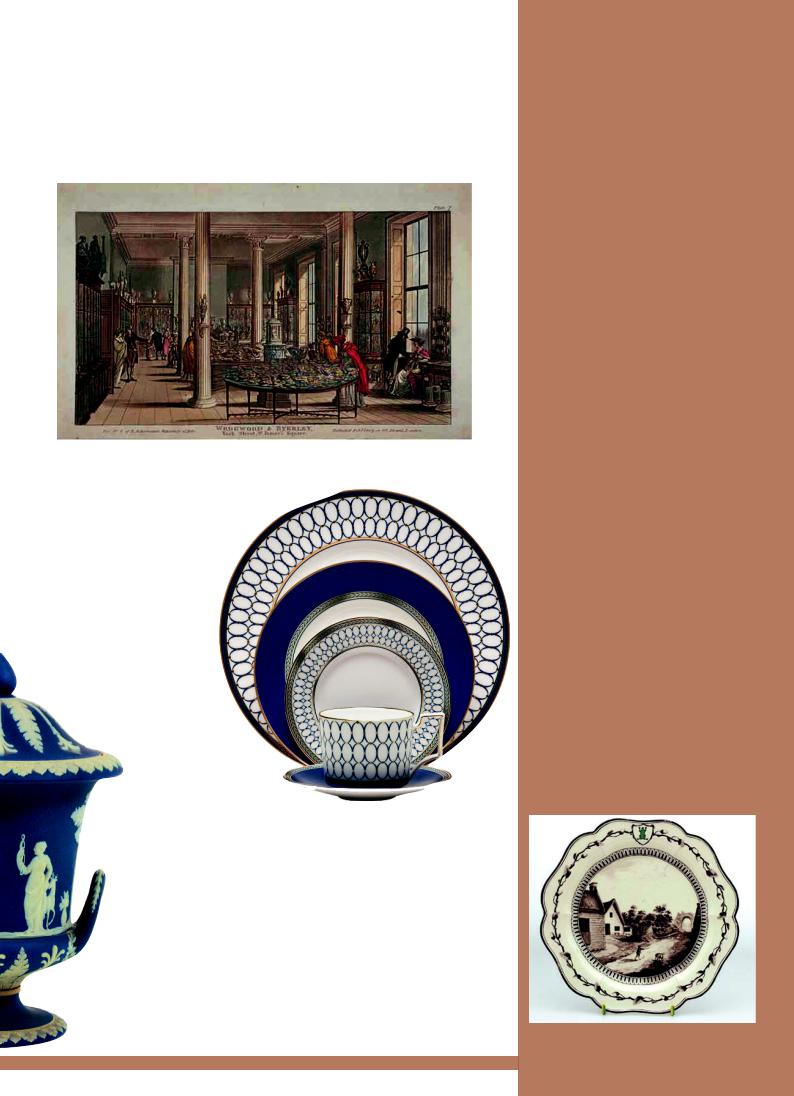
Wedgwood
which is still inseparably associated with such notions as “superb taste” and “English traditions” today. The exhibits of the display will cover an extensive range of topics associated with
ence and organization of emergence of the company in manufacturing of products in cient Greek and Roman styles, experiments with color and form, introduction of innovative technologies, issue of new pottery and creation
of fashionable jewelry. The Unrivalled Wedg-
will cointhe Music of the conducted by Berezovsky, a piano
. The festival become an event, and it devoted to
tures of different
. The festival will form a sort
musical accompaniment for the exhibition during the UKYear of Culture 2014. It will open on November 26 with a gala concert at the House of Music, and then four unforgettable recitals of star performers from Russia, England and Ireland will continue its program during the next four days at the mu-
seum.
Visitors of the exhibition will also be able to participate in the -Russia Year of Culture 2014 intense program which will accompany the main exhibition: lectures and round-table discussions, of films about Wedgwood, its time and fate, recitals of British works popular in the XVIII century, master classes, presentations Russian and the English tea party traditions, educational quizes. A souvenir shop offering Wedgwood products will be open during
exhibition.
TOPICAL JOURNEY |
|
English |
|
|
37 |
|
|
December 2014 |
WHY THE POTTERIES DEVELOPED?
This Wedgwood plate was made in Staffordshire. There are many reasons why Staffordshire became the centre of the pottery industry in Britain:
1.The raw materials of different types of clay, salt and fine sand that are used in making the pots could all be easily acquired.
2.Coal could be sourced easily to fire the ovens in which the pots were baked.
3.There was a suitable workforce. Some farmers had begun to make pots, tobacco pipes and large butterpots to make extra money because they made so little money farming and this soon became their main business. Other farm workers also left the fields to work at the potteries.
4.Pottery was cheap to make because these workers were paid low wages and had cheaper living conditions than elsewhere in the country.
5.There were a number of famous businessmen who had clever ideas about how to improve pottery making and transport it safely throughout Britain and the world.
THE PLATE
Wedgwood had become so famous that Empress Catherine II (the Great) of Russia asked him to make her a 952 piece dinner and dessert service for a Russian Palace called The Froggery. Each piece of pottery had a frog emblem. A new shape was modeled for the set called the ‘Catherine’ shape.
The plate was made 1773/74. It was the first dessert plate decorated. However, the artist made a mistake and painted an oak border which was only painted on dinner plates. It should have had an Ivy border. The picture in the middle is Castle Acre, Norfolk. To make the plate, white clay was mixed with flint which increased the whiteness and made the clay stronger. It was then glazed with a clear lead glaze.
This plate was part of the 952 piece ‘frog service’; each piece of pottery was decorated with a frog emblem.
